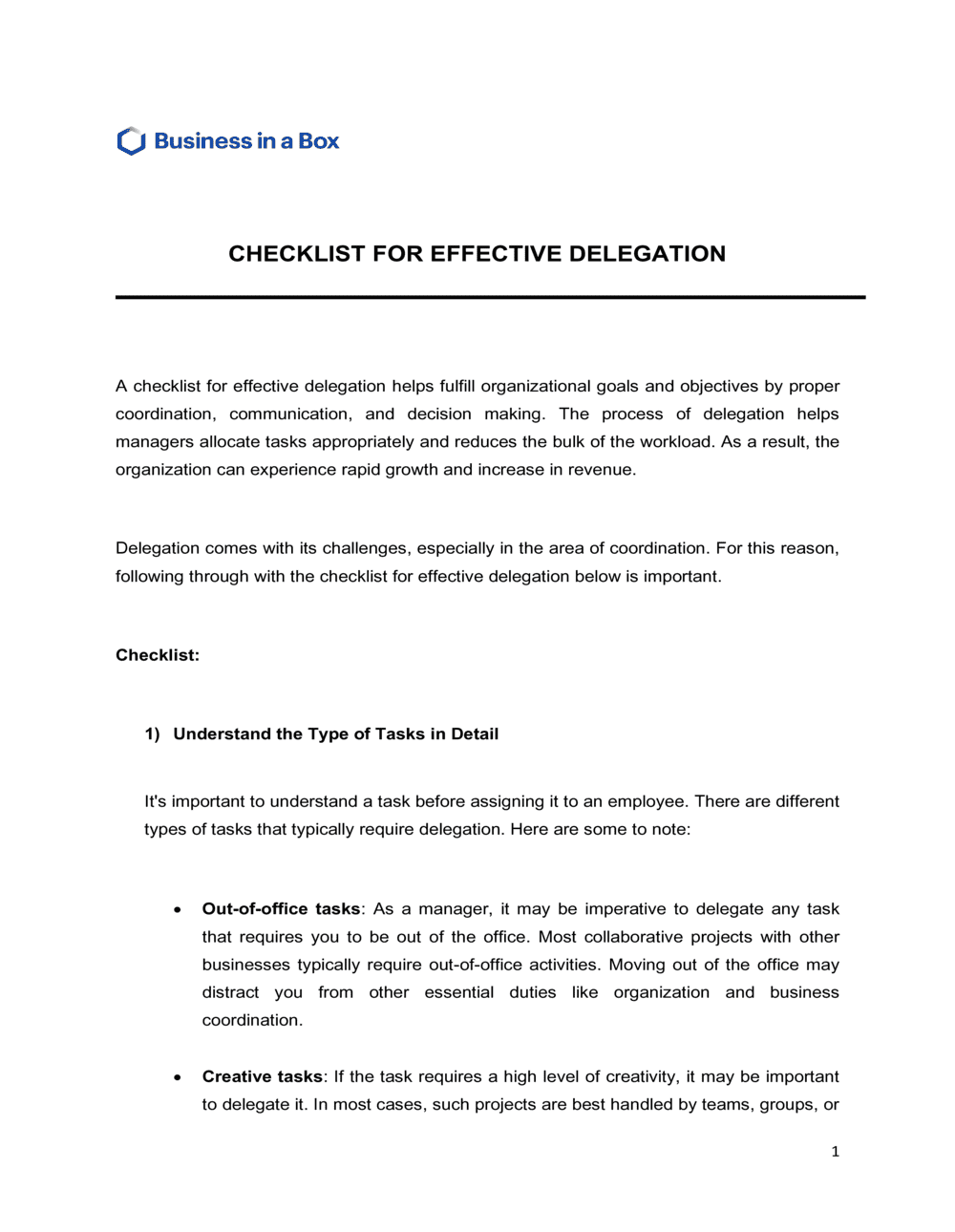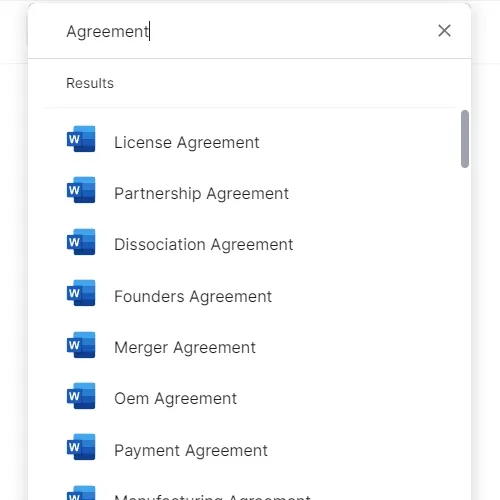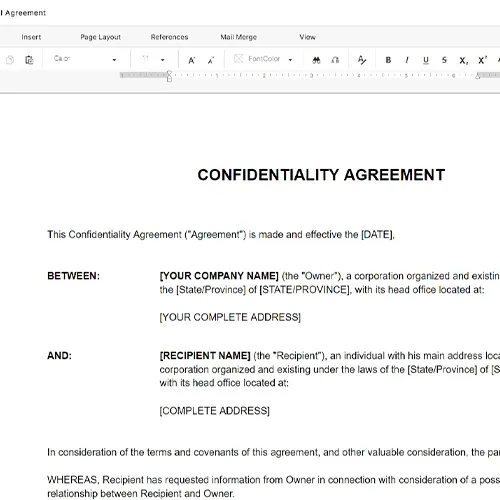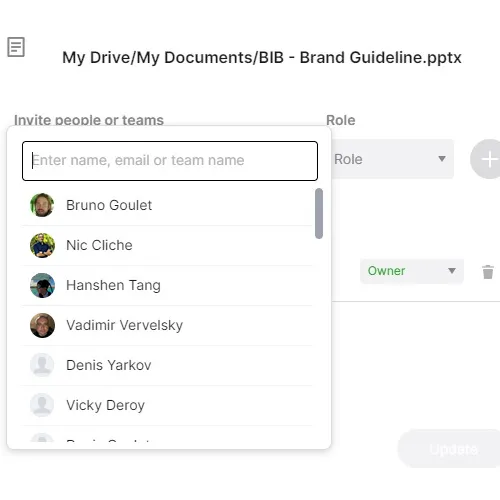Checklist For Effective Delegation

Document content
This checklist for effective delegation template has 5 pages and is a MS Word file type listed under our sales & marketing documents.
Sample of our checklist for effective delegation template:
CHECKLIST FOR EFFECTIVE DELEGATION A checklist for effective delegation helps fulfill organizational goals and objectives by proper coordination, communication, and decision making. The process of delegation helps managers allocate tasks appropriately and reduces the bulk of the workload. As a result, the organization can experience rapid growth and increase in revenue. Delegation comes with its challenges, especially in the area of coordination. For this reason, following through with the checklist for effective delegation below is important. Checklist: Understand the Type of Tasks in Detail It's important to understand a task before assigning it to an employee. There are different types of tasks that typically require delegation. Here are some to note: Out-of-office tasks: As a manager, it may be imperative to delegate any task that requires you to be out of the office. Most collaborative projects with other businesses typically require out-of-office activities. Moving out of the office may distract you from other essential duties like organization and business coordination. Creative tasks: If the task requires a high level of creativity, it may be important to delegate it. In most cases, such projects are best handled by teams, groups, or committees for the best results. Creativity requires a bank of ideas, which is available in teams of employees with suitable qualifications. Recurring tasks: These types of duties often occur regularly. Examples include completing weekly reports and attending weekly, biweekly, monthly, or quarterly meetings. Instead of running these tasks, it's more effective when you assign them to other qualified employees. You may check back to ensure the proper completion of those tasks. Quick/Intervening tasks: Intervening or quick tasks are sometimes impromptu or high-priority duties. These tasks require significant levels of time and attention, and a manager doesn't always have time. For this reason, it's advisable to assign such tasks to others instead of missing the required deadline. Look for the Best Employee After knowing the type of task you want to delegate, find an individual that meets the prerequisites. Every good leader should know the strengths and weaknesses of employees before task delegation. Understand your employees' interests and capitalize on that knowledge. An advisable method for delegating a task to the best employee is reviewing the available tasks and creating a list. After performing a review, offer the list to selected employees and ask them to choose based on interest. Task delegation based on that method may also help inspire individuals and solidify trust. Ensure the employee you delegate a task to meets the following standards: Strong collaboration: The employee should be willing to combine efforts with other individuals to help improve productivity. It's imperative that the employee easily comprehends instructions, solves problems, and delivers work on time. Authority: If you need your employee to assign tasks to other workers, you need to access the hierarchical structure. If the individual is not in the right position for authority, the task's success is at risk. Reliability: Before delegating a task to an employee, ensure that you trust that individual to do it correctly
3,000+ Templates & Tools to Help You Start, Run & Grow Your Business

Document content
This checklist for effective delegation template has 5 pages and is a MS Word file type listed under our sales & marketing documents.
Sample of our checklist for effective delegation template:
CHECKLIST FOR EFFECTIVE DELEGATION A checklist for effective delegation helps fulfill organizational goals and objectives by proper coordination, communication, and decision making. The process of delegation helps managers allocate tasks appropriately and reduces the bulk of the workload. As a result, the organization can experience rapid growth and increase in revenue. Delegation comes with its challenges, especially in the area of coordination. For this reason, following through with the checklist for effective delegation below is important. Checklist: Understand the Type of Tasks in Detail It's important to understand a task before assigning it to an employee. There are different types of tasks that typically require delegation. Here are some to note: Out-of-office tasks: As a manager, it may be imperative to delegate any task that requires you to be out of the office. Most collaborative projects with other businesses typically require out-of-office activities. Moving out of the office may distract you from other essential duties like organization and business coordination. Creative tasks: If the task requires a high level of creativity, it may be important to delegate it. In most cases, such projects are best handled by teams, groups, or committees for the best results. Creativity requires a bank of ideas, which is available in teams of employees with suitable qualifications. Recurring tasks: These types of duties often occur regularly. Examples include completing weekly reports and attending weekly, biweekly, monthly, or quarterly meetings. Instead of running these tasks, it's more effective when you assign them to other qualified employees. You may check back to ensure the proper completion of those tasks. Quick/Intervening tasks: Intervening or quick tasks are sometimes impromptu or high-priority duties. These tasks require significant levels of time and attention, and a manager doesn't always have time. For this reason, it's advisable to assign such tasks to others instead of missing the required deadline. Look for the Best Employee After knowing the type of task you want to delegate, find an individual that meets the prerequisites. Every good leader should know the strengths and weaknesses of employees before task delegation. Understand your employees' interests and capitalize on that knowledge. An advisable method for delegating a task to the best employee is reviewing the available tasks and creating a list. After performing a review, offer the list to selected employees and ask them to choose based on interest. Task delegation based on that method may also help inspire individuals and solidify trust. Ensure the employee you delegate a task to meets the following standards: Strong collaboration: The employee should be willing to combine efforts with other individuals to help improve productivity. It's imperative that the employee easily comprehends instructions, solves problems, and delivers work on time. Authority: If you need your employee to assign tasks to other workers, you need to access the hierarchical structure. If the individual is not in the right position for authority, the task's success is at risk. Reliability: Before delegating a task to an employee, ensure that you trust that individual to do it correctly
Easily Create Any Business Document You Need in Minutes.

Access over 3,000+ business and legal templates for any business task, project or initiative.

Customize your ready-made business document template and save it in the cloud.

Share your files and folders with your team. Create a space of seamless collaboration.
Templates and Tools to Manage Every Aspect of Your Business.
Business in a Box Covers Every Business Department
Includes 16 Types of Business Documents You Need
and Achieve Your Business Goals Faster.
